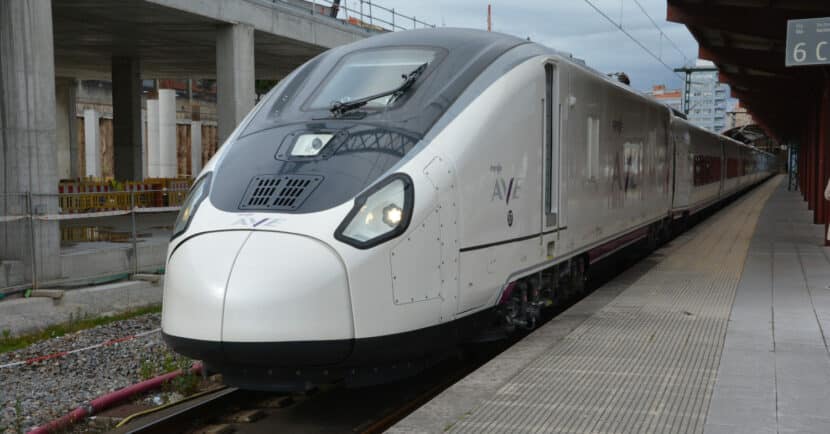Renfe has announced a major change to its punctuality commitment, which removes the voluntary part for which the operator stands out from its competitors. The change will affect tickets for commercial trains (AVE, Alvia, Intercity and Euromed) purchased from 1 July, but will be maintained for all those purchased before that date.
From next month, Renfe will adhere to the provisions of Article 89 of Spanish Royal Decree 2387/2004, of 30 December, approving the Railway Sector Regulations. Like iryo and Ouigo, it will apply the punctuality commitment indicated in that section.
However, Renfe will offer more advantageous conditions than its competitors when it comes to paying compensation, which may be double the value of the ticket.
This is Renfe’s new punctuality commitment
Since the debut of the Madrid-Seville AVE in 1992, Renfe has stood out above all other railway operators and companies for applying very advantageous conditions in the event of train delays. In the then-new AVE, the company’s confidence in its operation led it to refund the fare if the train was only five minutes late.
However, the arrival of competition and the increase in the number of incidents caused by the greater use of the infrastructure, together with the greater difficulty in making the operation of its commercial trains profitable, has forced Renfe to reconsider its commitment to punctuality. Thus, from 1 June, it will compensate passengers if the delay is:
- From 60 minutes: 50% of the ticket price.
- From 90 minutes: 100% of the ticket price.
However, Renfe improves the compensation that passengers will receive in two cases:
- In Renfecitos: if the affected person chooses to receive the compensation in Más Renfe points, now called Renfecitos, they will receive the equivalent of double the corresponding compensation. For example, if the train arrives 80 minutes late and the ticket is €50, the operator will give 500 Renfecitos exchangeable for train tickets or other benefits. If the delay is 100 minutes, the compensation would be 1,000 Renfecitos.
- In travel vouchers: if, on the other hand, you prefer a travel voucher to buy another Renfe ticket, the voucher will be worth 150% of the compensation amount. In the example above, the voucher would be worth €75 in the case of an 80-minute delay and €150 if the delay is 100 minutes.
What time is the train considered to arrive at the station?
When claiming your delay compensation, you should bear in mind that, for compensation purposes, the time of arrival is not the time at which the train stops at the platform and opens the doors.
Although it is logical to think that this is the case, the official arrival time is the time at which the train passes the station entrance signal. The entrance signal is the signal that authorises trains to enter a station and is therefore located before the station.
In smaller stations it may be close to the platform, but in larger stations it may be quite far away. Therefore, it may take several minutes from the time the signal is crossed until the train opens its doors. This is particularly relevant when the delay is low relative to the punctuality commitment.
In other words, if your train opens 62 minutes after the official arrival time, you will most likely not be able to claim compensation. And if it is 92 minutes late, the compensation will probably be calculated taking into account a delay of more than 60 minutes.
what has Renfe’s punctuality commitment been like up to now?
Until now, Renfe has improved on the requirements of Spanish legislation (which, moreover, is stricter than European legislation), offering the following compensation:
- AVE, on domestic routes: 50% compensation for delays of 15 to 29 minutes and 100% for delays of more than 30 minutes.
- Alvia and Euromed: 50% if the train arrives 30 or more minutes late and 100% if it arrives 60 or more minutes late.
- Avlo and Intercity: same conditions as those applied since 1 July.
The reaction of Renfe users has been negative to these changes and the association FACUA considers it “unacceptable”.
